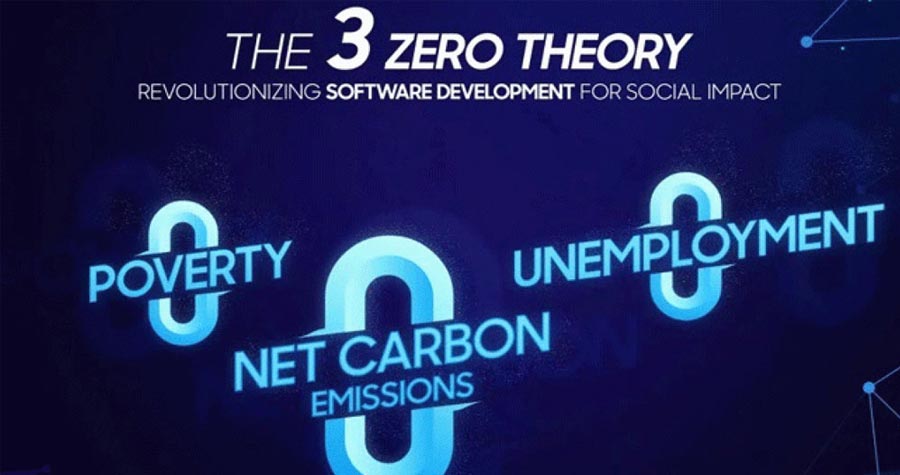In the face of today’s three major global crises—poverty, unemployment, and climate change—an innovative solution has emerged: the ‘Three Zero Theory’. This visionary framework was introduced by Nobel Peace Prize laureate, founder of Grameen Bank, and current Chief Advisor of Bangladesh’s interim government, Professor Muhammad Yunus.
The theory proposes a new development paradigm based on human-centered economics, social responsibility, and environmental sustainability. Professor Yunus states, “If we want to build a livable planet for future generations, we must rethink our current profit-driven economic model.”
What Do the Three ‘Zeros’ Mean?
1. Zero Poverty:
This goal envisions an economic system where every individual’s basic rights—food, shelter, education, and healthcare—are fully ensured. According to Yunus, poverty is not a natural condition; it is a man-made failure.
2. Zero Net Carbon Emissions:
To counteract the devastating effects of climate change, reducing carbon emissions is crucial. The theory emphasizes the need for green energy, sustainable industrial practices, and climate-friendly technology.
3. Zero Unemployment:
In this model, every person is seen as a potential entrepreneur. There is no shortage of work in society—what’s needed is access to resources and opportunities. It shifts away from the traditional notion of job-seeking to a mindset of “Don’t look for a job, create a job.”
Social Business: The Driving Force Behind the Theory
To implement the Three Zero goals, Professor Yunus advocates for the Social Business model—a form of business dedicated to solving social problems rather than maximizing profit. Investors recover only their initial capital, with all profits reinvested for further social good.
How Is the Theory Being Applied Globally?
Across the world, governments and organizations have started embracing the Three Zero Theory through various initiatives—promoting renewable energy, empowering youth entrepreneurship, and investing in social business projects.
Experts believe the Three Zero Theory is not just a development vision but a growing movement—one that aims to create a more just, humane, and sustainable world.

